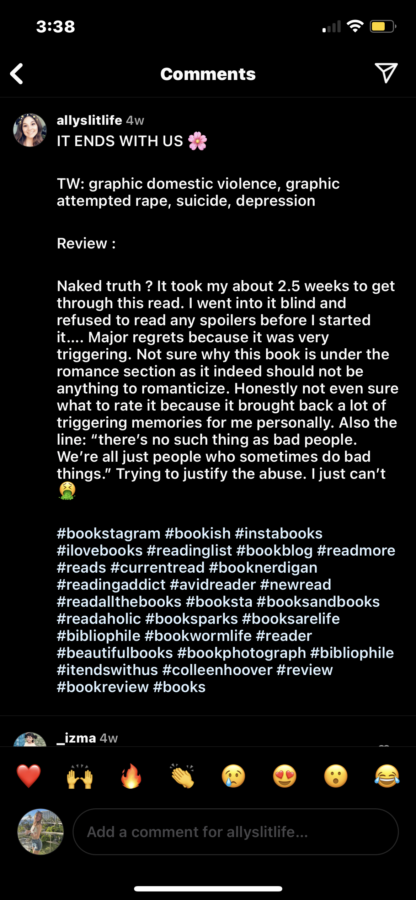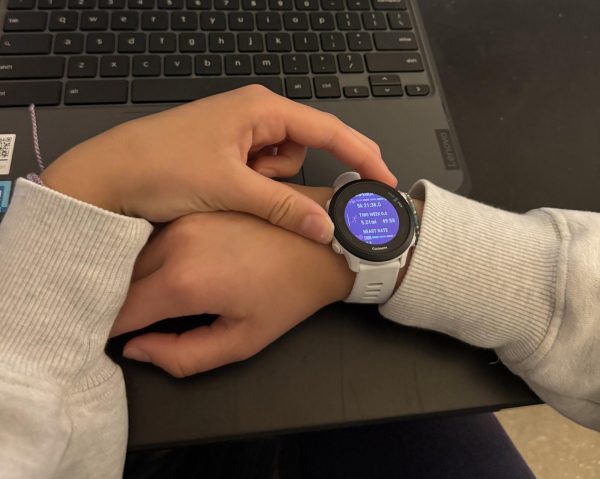Dangerous or beautiful: Does Colleen Hoover romanticize domestic abuse in her popular books?
Colleen Hoover’s book “It Ends With Us” stirs controversy on whether or not it romanticizes domestic abuse.
The typical romantic story: boy meets girl, boy sweeps girl off her feet, boy and girl fall madly in love and get married and live happily ever after, the end. But that’s not the story Colleen Hoover created for Lily Bloom and Ryle Kincaid.
The premise of Hoover’s popular yet controversial book It Ends With Us is the main character, Lily, grew up watching her mother be abused by her father. She doesn’t understand how her mother never leaves him and vows never to be like her when she meets the first boy she ever loves, a homeless kid named Atlas Corrigan.
Fast forward years later, Lily is on her own, trying to make a life for herself when she meets Ryle on a rooftop, giving her the idea to start her own flower shop. After six months, her shop is finally opened and she hires an all-over-the-place, loveable girl named Allysa, whose brother just so happens to be Ryle, who Lily hadn’t spoken to since the night on the roof, and the two quickly fall in love.
This all sounds romantic, an amazing meet-cute with her new friend becoming like her sister, but it gets dark fast. While still dating, Atlas shows back up in her life, and Ryle displays some unnerving behavior, lashing out at both Lily and Atlas. This behavior continues throughout their relationship and into their marriage, becoming violent and resulting in Lily being hit and pushed down the stairs.
The obvious thought in every reader’s head was “leave him” or “you said you wouldn’t be like your mother, but you are doing the same thing as her.” This is where it gets tricky. Hoover’s idea behind the book was to help readers understand why people don’t leave abusive relationships. Ryle repeatedly apologizes for his actions, doing anything he can to make it better, and, because she loves him, Lily makes excuses and repeatedly forgives him. Each time he hurts her, she says next time it happens she will leave.
Hoover wrote the character of Ryle in such a charming way so the reader is put in Lily’s shoes. She purposely made us fall in love with him, and root for him, so that we would have a hard time leaving him as well.
I understand the idea behind this. By understanding how hard leaving an abusive relationship is, people may have more compassion with people in this situation, rather than just telling them that walking out is obvious.
However, there are people who don’t understand this, so it looks like Hoover is romanticizing abuse by making readers want to root for Ryle. I do agree it is a little bit unrealistic, especially at the end of the book when Lily leaves him but agrees to co-parent with him, which allows him to stay in her life, show remorse and attempt to win her back, as that often doesn’t happen. But, the whole point of the book is to make us feel like we are Lily, to us and to her, he is charming and loveable, while flawed. It is to help us feel compassion towards people in these types of relationships and perhaps better help them.
Your donation will support the student journalists of Thomas S. Wootton High School. Your contribution will allow us to purchase equipment and cover our annual website hosting costs.
Rae is a 2023 graduate.







